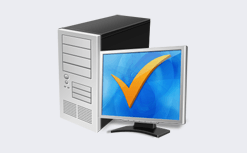- HOME
-
DEDICATED SERVERS
Netherlands Dedicated Server
Germany Dedicated Server
Bargain Servers
PraHost offers special discount servers at amazing prices and no extra or hidden charges guaranteed.
![server_image]()
-
MANAGED Solutions
Addone Services
Customized Solutions
- High Performance Computing
- Load Balancing & High Availability
- Server Monitoring Service
- Virtual Private Networking
Technology
Some of the top brand name of technology niche like Intel, Cisco and HP
![server_image]()
-
About Us
Legal Information
2.5+ TBps of Bandwidth
Multiple Internet exchanges in Europe, US and Asia
![image_of_server]()
- CONTACT US
Web Server Operating Systems
It does not matter if you are an SMB, or a Large Enterprise - PraHost dedicated servers come with either Linux or Windows operating systems for you to choose based on your requirements and preferences. If you are confused about which OS is best for your business, do not hesitate to get in touch with our Altruistic Support.
Operating Systems Available on
Windows Server- Windows SPLA
To enable service providers offer software as a service in the most painless way, Microsoft came up with the Service Provider License Agreement (SPLA). SPLA allows those who hold Microsoft licenses (the service providers) to have 3 rd party rights for commercial use. This makes it convenient for the end users (the clients) to enjoy services that ride on Microsoft Software Products without obtaining their own licenses from Microsoft.
PraHost issues this SPLA license which means you get all the rights you require to use software functionalities designed by Microsoft.
Windows Server Operating Systems
- Windows 2008 and 2012 R2 Datacenter
- Windows 2008 and 2012 R2 Standard
- Windows 2008 and 2012 R2 Web
- Windows 2008 and 2012 R2 Enterprise
- Non-R2 editions (32-bits) can be installed in those instances where the hardware is not 64-bit compatible
Terminal Licenses
Terminal licenses can be assigned to the windows licenses, in addition to the number of users contained in the SPLA edition. If you wish to learn more on our options and pricing, reach out to us at [email protected]Microsoft SQL server
- Microsoft SQL Server 2008 Enterprise
- Microsoft SQL Server 2008 Web Edition
- Microsoft SQL Server 2008 Standard
- Microsoft SQL Server 2008 Workgroup
Linux OS



